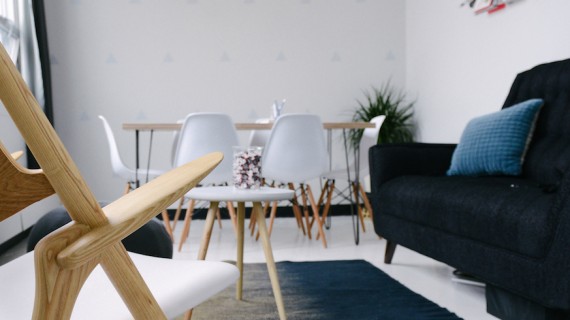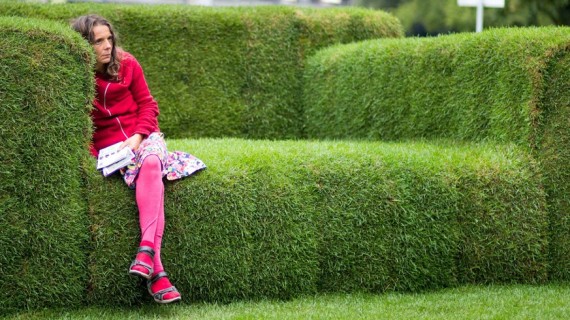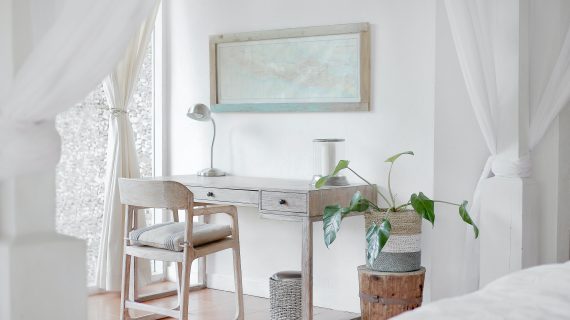Feng shui is a Chinese term that literally means “wind and water”, two natural elements essential for life. In fact the millenary discipline of feng shui is considered indispensable for the interpretation of the landscape and in particular for the design of buildings and interior spaces. Its aim is to avoid the release of negative energies into the environment that can influence humans.
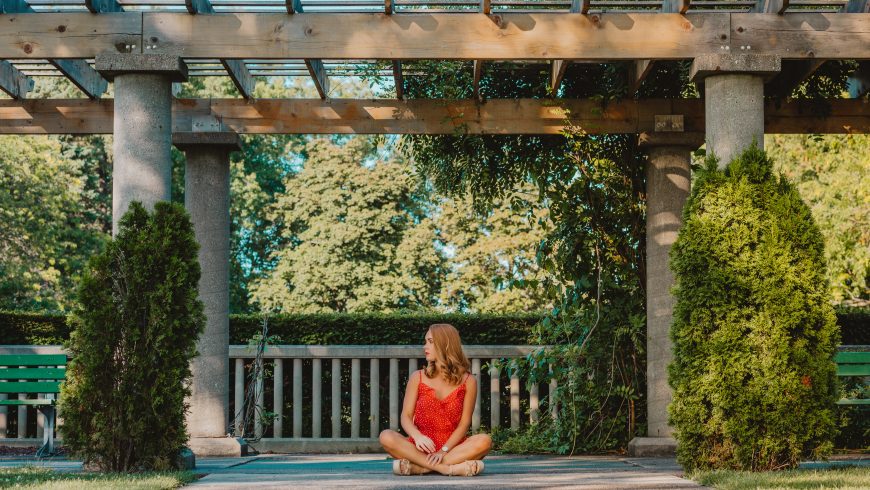
The origin of feng shui
Feng shui is a tradition of Chinese and Tibetan origin dating back over five thousand years. In order to fully understand the meaning of this discipline it is necessary to explore the Taoist philosophy. Everything starts from ch’i, the vital energy that flows in the world, which responds to precise universal principles. This natural order cannot be fully understood by humans, but they are aware of its perfect proportion. Therefore there is a harmony in the world that must be respected and preserved. This is what feng shui is all about: living in symbiosis with the natural order of the elements.
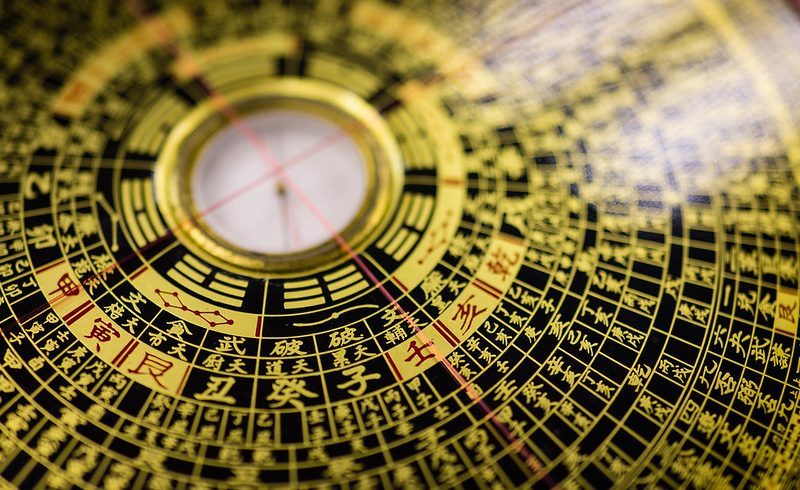
This practice is still widely present in both China and Japan. Just think that the opinion of a feng shui master can even affect the entire real estate market. In fact the experts use a map called Bagua and compare it with the building plan. In case it doesn’t coincide, one has to run for cover. Moreover, when an economic activity suffers a drop in profits, it is common practice to check whether any negative energy given by the office furniture has affected what happened.
Furnishing according to feng shui
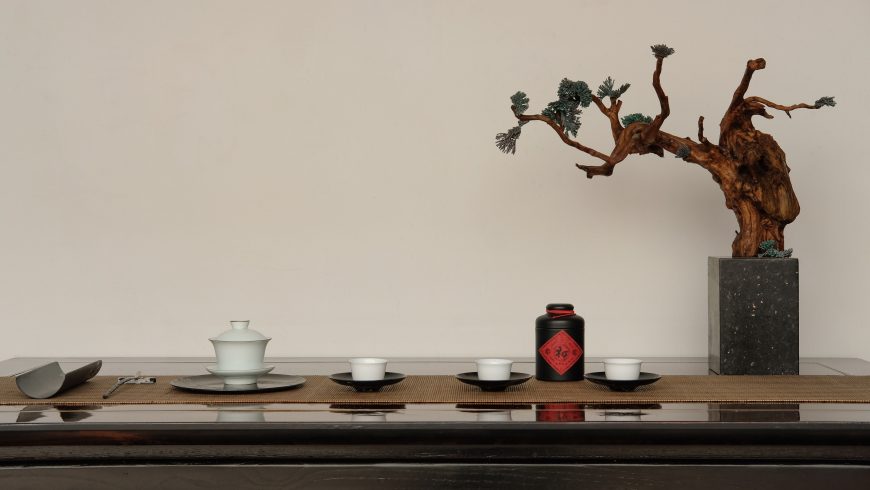
The basic rule of the feng shui philosophy is keep order. Get rid of all useless objects accumulated over the years, because they emanate negative energies (yin). After that, tidy up the rooms by putting everything in the right place. The aim is to allow positive energies (yang) to flow freely, infusing serenity and well-being into the rooms. In general, this practice suggests choosing natural materials such as wood, stone or metal and avoiding plastic materials. After all, feng shui revolves around the 5 main elements (wood, fire, metal, water and earth). Consequently, it is good to surround yourself with furniture and objects that recall them. It is also essential to favour natural daylight, through large windows and light coloured curtains. Alternatively, natural candles or lanterns create a relaxing atmosphere and evoke the element of fire.
The hallway
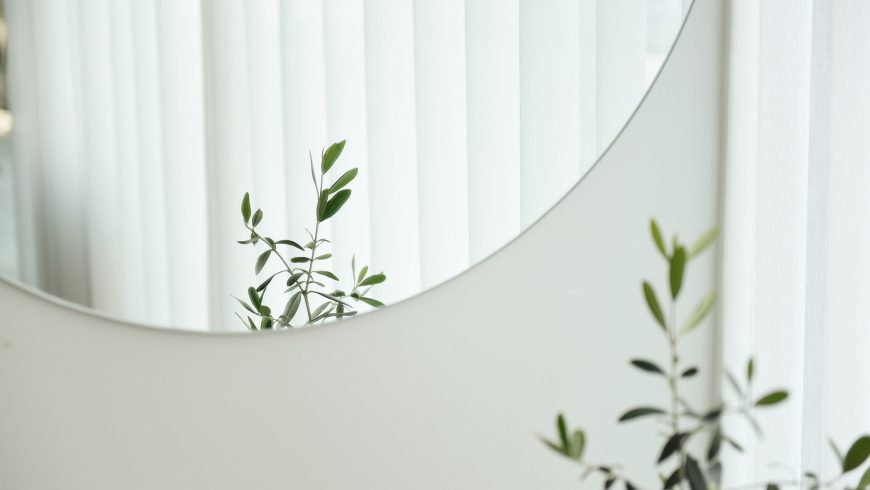
The hallway should be decorated with paintings in soft colours, possibly in front of the entrance door facing the wall, but avoiding filling the walls to suffocate them. This environment is the most suitable for a mirror, as it is able to expel bad forces, but be careful not to place it in front of the doorway or in the bedroom: its great energy can leave the house or disturb your sleep! Finally, the doors on the corridor should not slam against each other, because their friction could extend to the people living in the house.
The bedroom
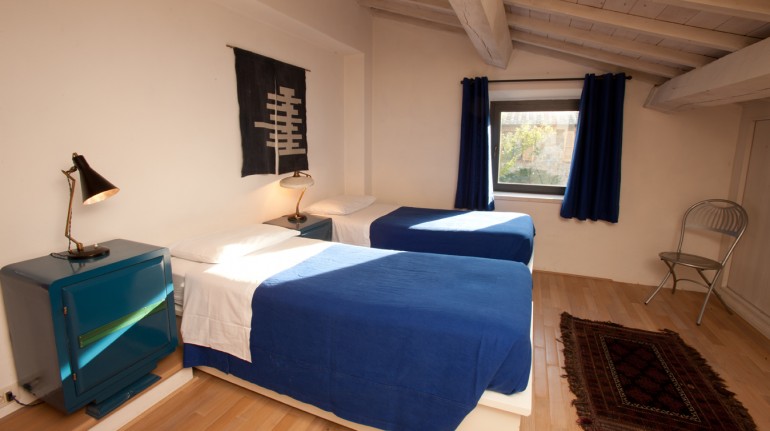
Tidiness in this room is very important to ensure a peaceful night’s sleep. Get rid of computers, televisions or gym equipment that prevent relaxation. In addition, the bed should be placed away from the door but in a “command” position, i.e. facing the entrance but with the headboard leaning against a supporting wall, to give a sense of protection. Moreover, this room should be as far away as possible from the main door and the street. Instead, natural landscape or a garden would trasmit calm. Finally, you should open the windows often to keep the air oxygen-rich at all times.
The kitchen
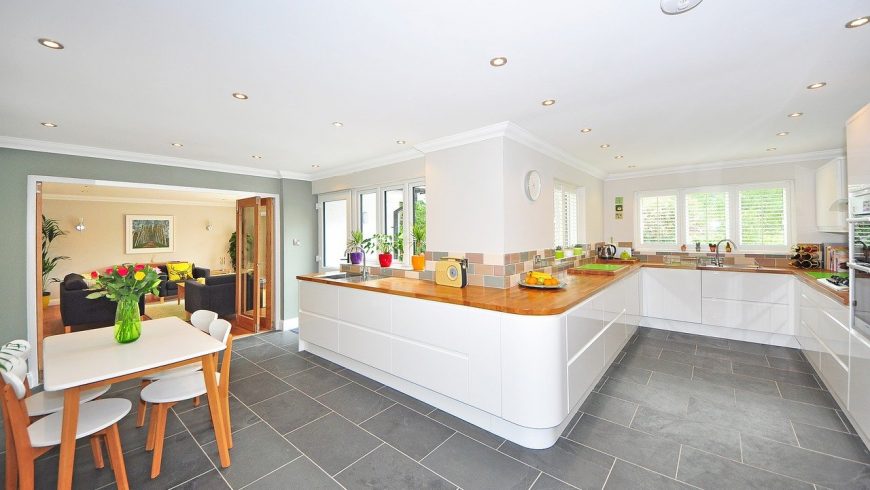
The kitchen must be a welcoming and functional place. Although various tools are needed for cooking, it is preferable to avoid the accumulation of unnecessary objects and keep this environment well organized. Since this room is used for the preparation of food, which has a huge impact on a person’s psychophysical well-being, the kitchen deserves special care in the choice of furnishings and location within the house. For example, it should not be accessible directly from the front door, as positive energies may come out. Furthermore, the door should not be behind the cook, to give a feeling of tranquillity. Finally, the kitchen should have different levels of lighting and the furniture should have rounded shapes, especially the table.
The living room
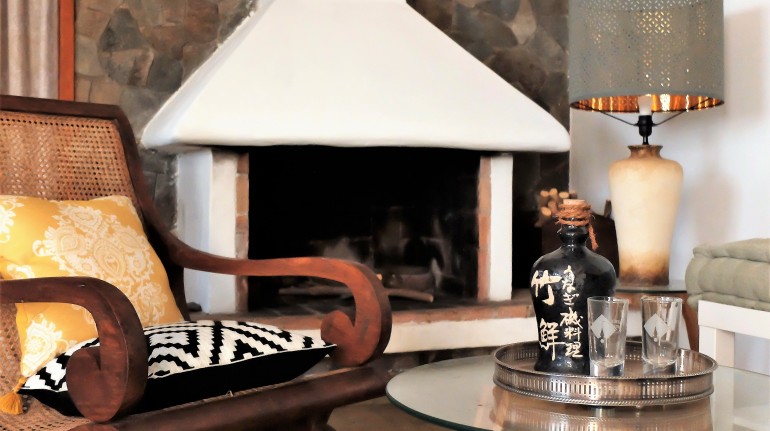
The living room represents the beating heart of the house. Guests are welcomed and intimate moments are created within the family. The protagonist of this room is the sofa, which must be placed in front of the entrance to give a message of hospitality to those who enter. A round coffee table is preferable, which favours communication. If there is a fireplace, you should avoid an aquarium as the elements of water and fire would be in contrast. Finally, you should fill the corners of the room, pruning negative energies, with plants or warm lights.
The power of colours
Having a colourful home is the desire of many people, who can’t wait to paint the walls of their home to give it a touch of life. But according to oriental tradition, every colour has a precise meaning and you have to take this into account when deciding which is the most appropriate colour.
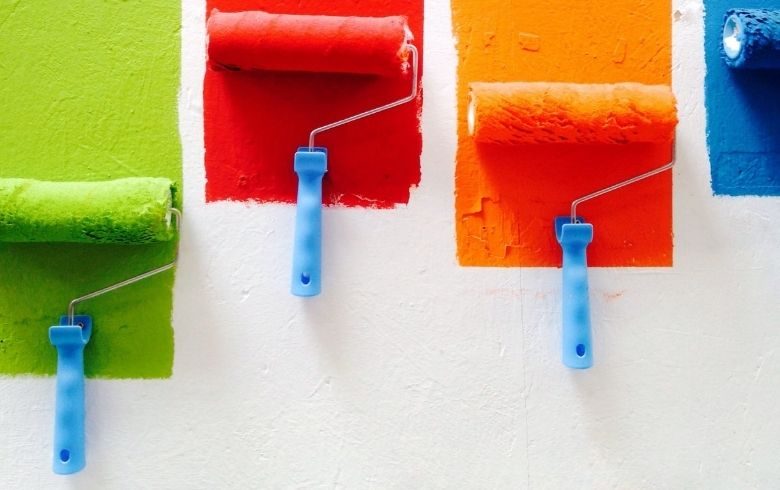
- White is often used for its practicality. This bright colour is linked to determination, although it can give a sense of monotony and coldness. For this reason it is always a good idea to give a touch of yellow or beige to create some warmth in the environment. In addition, white is widely used in public places as a good omen for success, as white symbolises money.
- Green has a strong relaxing power, as it is associated with nature and the oxygen released from the trees. This colour is a symbol of growth and study, it allows us to travel with the mind and release stress. The bedroom is the perfect room for green, taking care to choose a light shade.
- Red is the colour of passion par excellence. You should not abuse it in order not to create oppressive environments. Light red and pink have a relaxing effect, suitable for the bedroom. On the other hand, lilac is particularly suitable for the living room, to stimulate communication and sociality in a meeting place.
- Yellow gives warmth and energy. You should use this colour especially in the living room or kitchen, to stimulate good mood and creativity.
- Blue represents depth, it is a very particular colour because it could induce you to navigate too much inside yourself, risking falling into melancholy. Light blue is a colour suitable for both the day and the night area.
Eco-hotels and Feng shui
Finally, you can enjoy the benefits of this philosophy during your holiday, thanks to the accommodations built according to the principles of feng shui. Here are some of them in Italy and Europe.
Eco Hotel Ariston, on Lake Garda
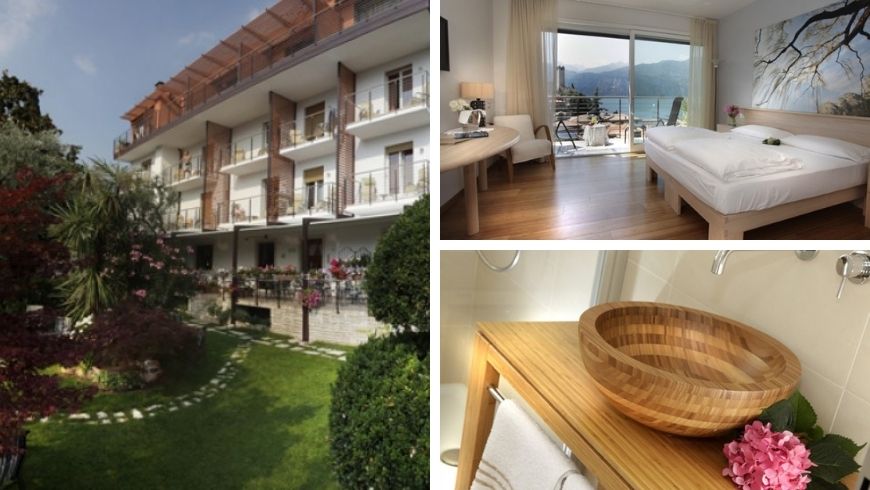
The Eco Hotel Ariston is welcoming and cared in every detail. It is immersed in the green of a splendid garden, an oasis of relaxation. Ideal for those who do not like to use the car, as it is located a few steps from the historic centre of Malcesine, and the most beautiful beaches of Lake Garda. It is also next to the cable car to Mount Baldo, the starting point for beautiful nature walks.
Centro Anidra, in the Liguria region
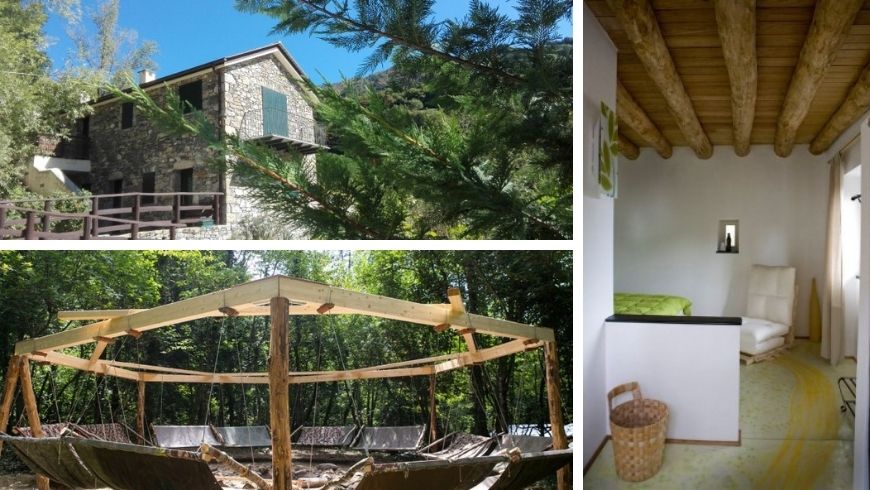
In Borzonasca, in the hinterland of the Ligurian Riviera, Centro Anidra is an eco-village and organic agritourism. It is built on solid local stone construction, but renovated according to the criteria of bio-architecture and Feng Shui. The use of natural and local materials, such as chestnut wood on the ceilings and roof and lime plaster on the walls, has in fact made it possible to offer a welcoming space in total harmony with the natural environment.
Mani Sonnenlink, in Greece
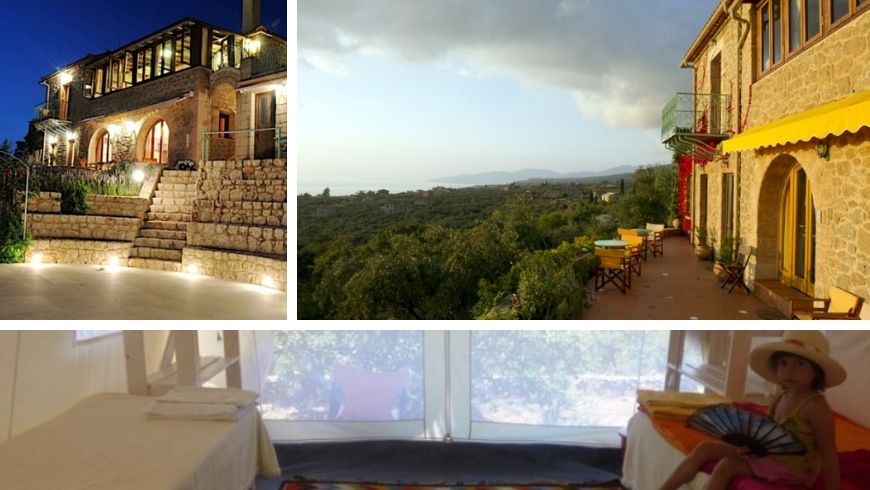
The Mani is a stimulating and spectacular region in the Peloponnese Messinia. A powerful scenery of rocky hills sloping down to the deep blue sea. Mani Sonnenlink is a multifunctional Vital Energy Feng Shui resort offering suites, bungalows, tents, seminars and meditation rooms, an outdoor Greek theatre and excellent organic cuisine.
The Wellness Home, in London
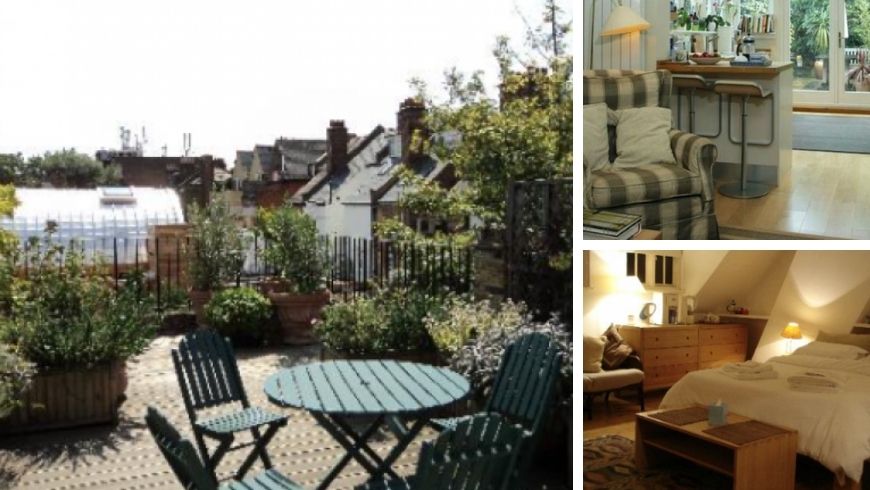
In the Wellness Home you can live life in a quiet and stress-free way. The structure designed with natural technologies give you clean air, pure water and regenerating sleep to give you a new sense of vitality. Add nutritious organic food and a harmonious environment based on the principles of feng shui and Wellness Home will help you experience the balance you need to feel truly healthy.
Zen Republic, in Tenerife
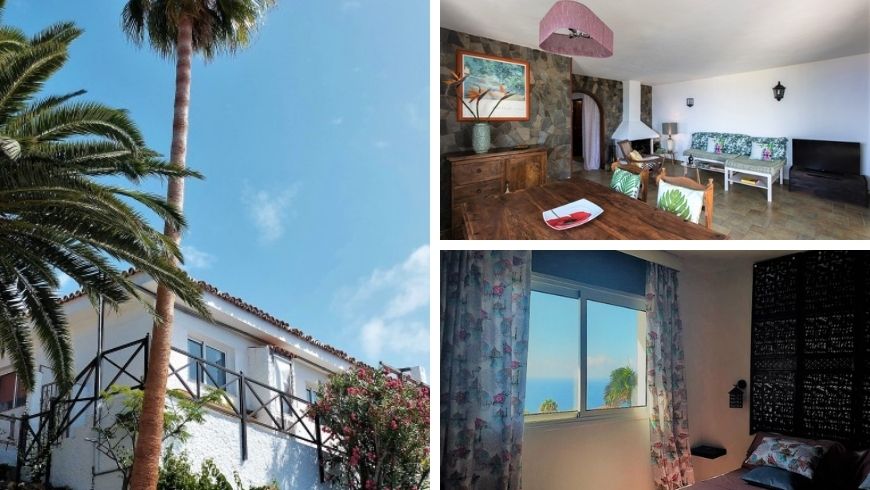
The Zen Republic is a unique wellness villa. Inspired by tropical Asia, the set is a delight for the senses with breathtaking views of the Teide and the ocean. The structure, with refined decorations and excellent services, has a careful and simple design, faithful to the principles of Feng Shui, to enjoy an environment that explodes with harmony both day and night.
Furthermore, by typing “feng shui” in the search bar, you will have a wide choice of eco-sustainable hotels with harmonious and relaxing environments.
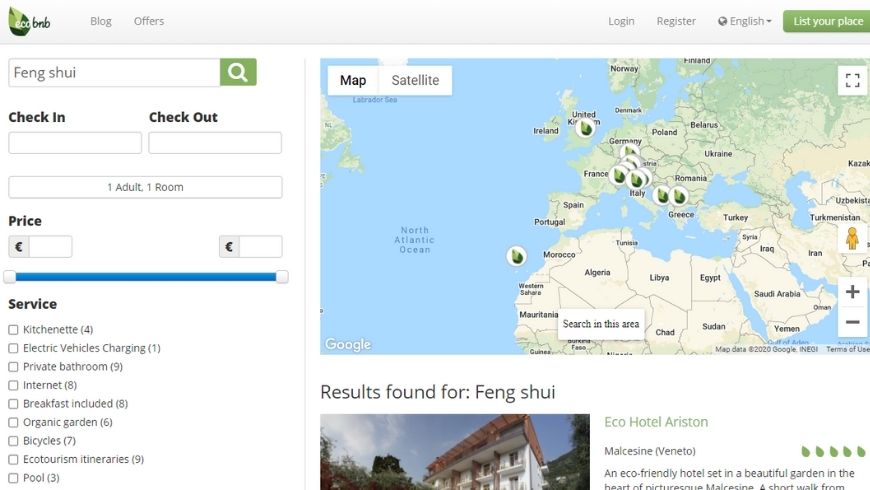
Western and eastern architecture have in common the search for balance. While the former achieves it through symmetry, the latter aims to balance the forces around us, giving well-being and harmony.
Cover image: Photo by Alexander Stein on Pixabay
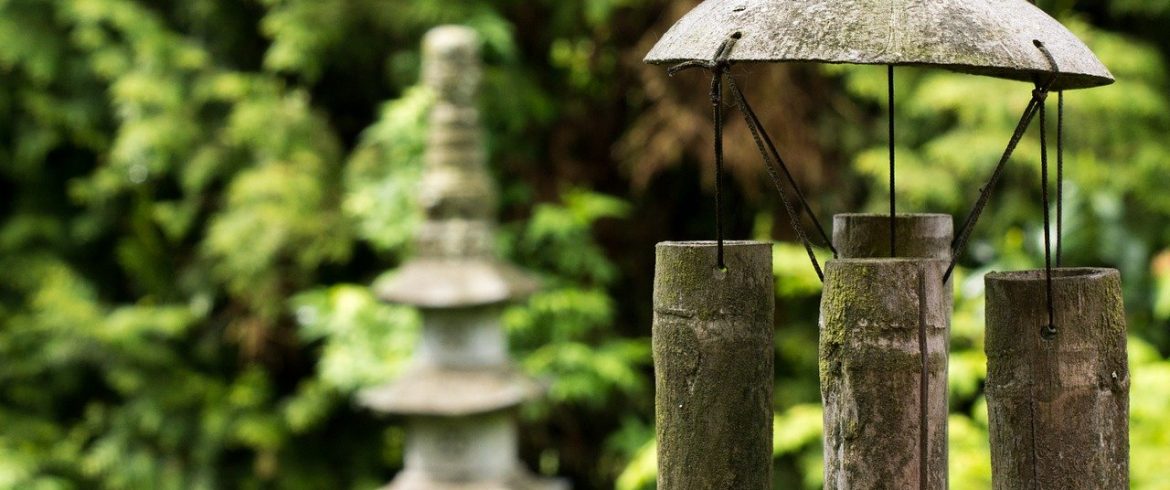
 Eco Hotel Ariston – Green Hotel in Malcesine, Verona, Veneto, IT
Eco Hotel Ariston – Green Hotel in Malcesine, Verona, Veneto, IT  Zen Republic, wellness villa – Green House in El Sauzal, Santa Cruz de Tenerife, Canary Islands, ES
Zen Republic, wellness villa – Green House in El Sauzal, Santa Cruz de Tenerife, Canary Islands, ES  Mani Sonnenlink – Green Resort in Pirgos, Peloponneso, Peloponnisos Dytiki Ellada ke Ionio, GR
Mani Sonnenlink – Green Resort in Pirgos, Peloponneso, Peloponnisos Dytiki Ellada ke Ionio, GR 